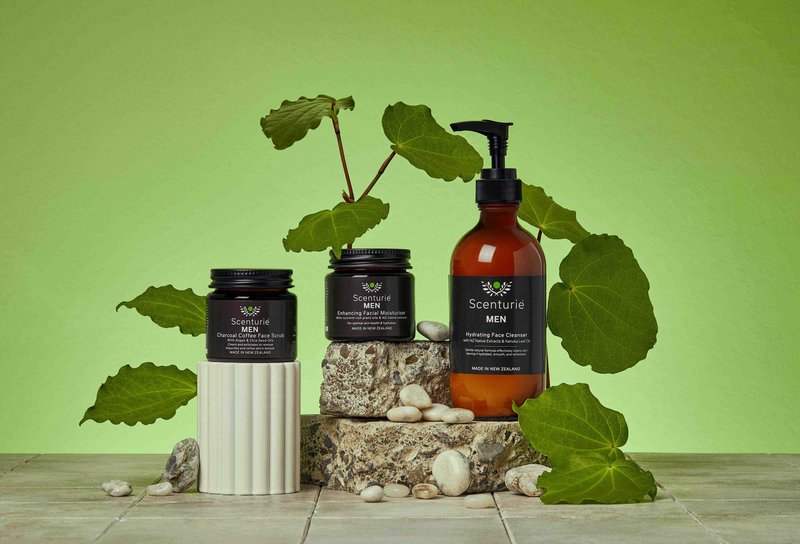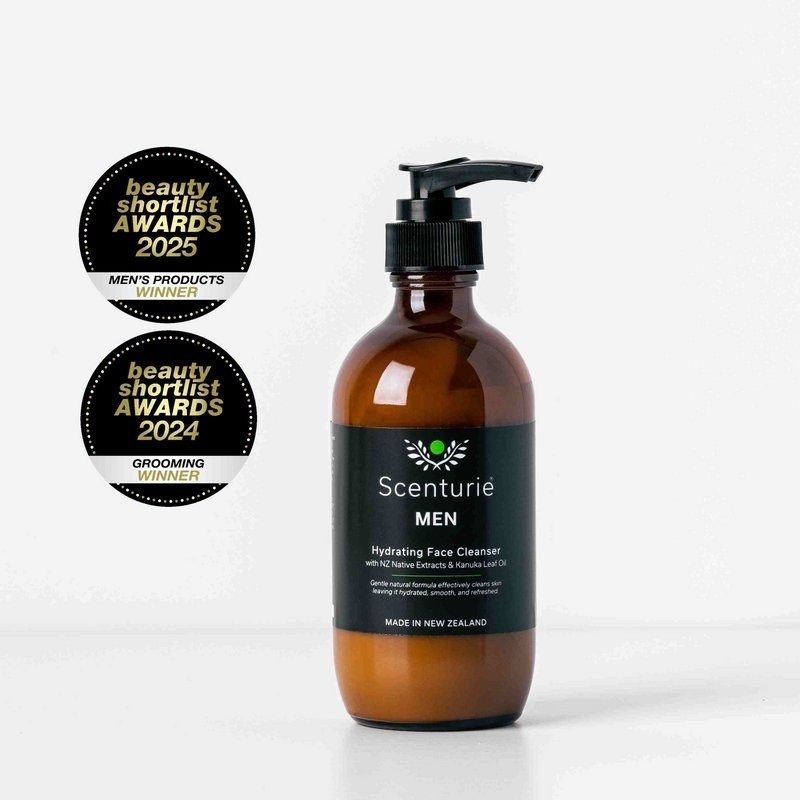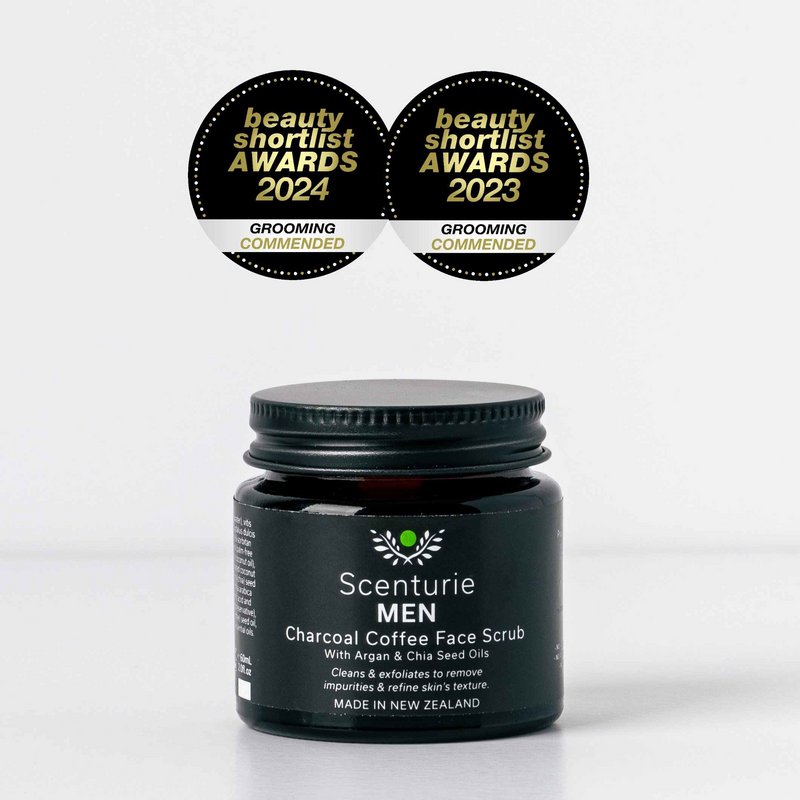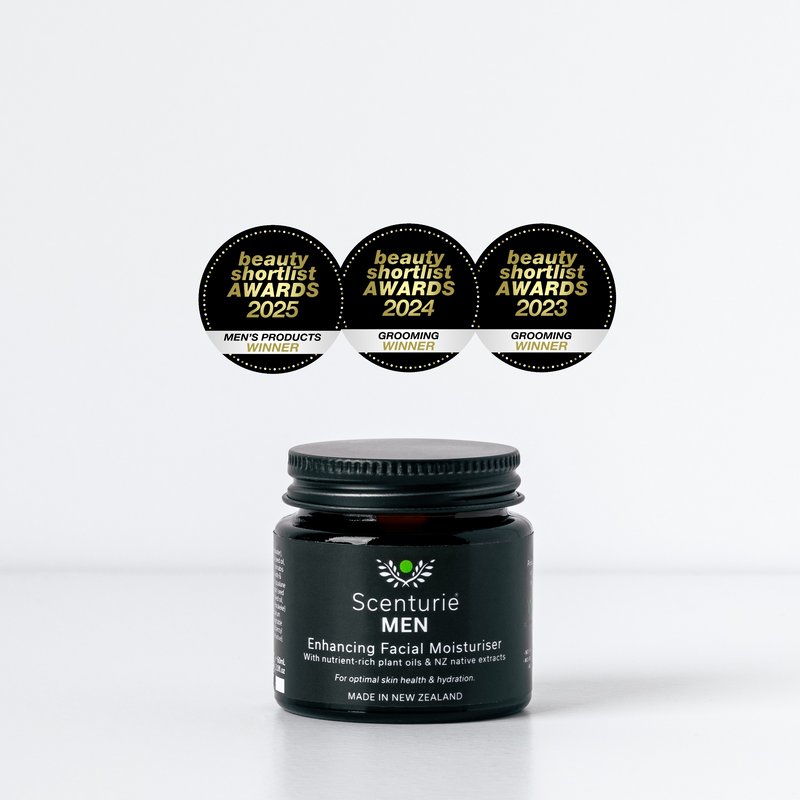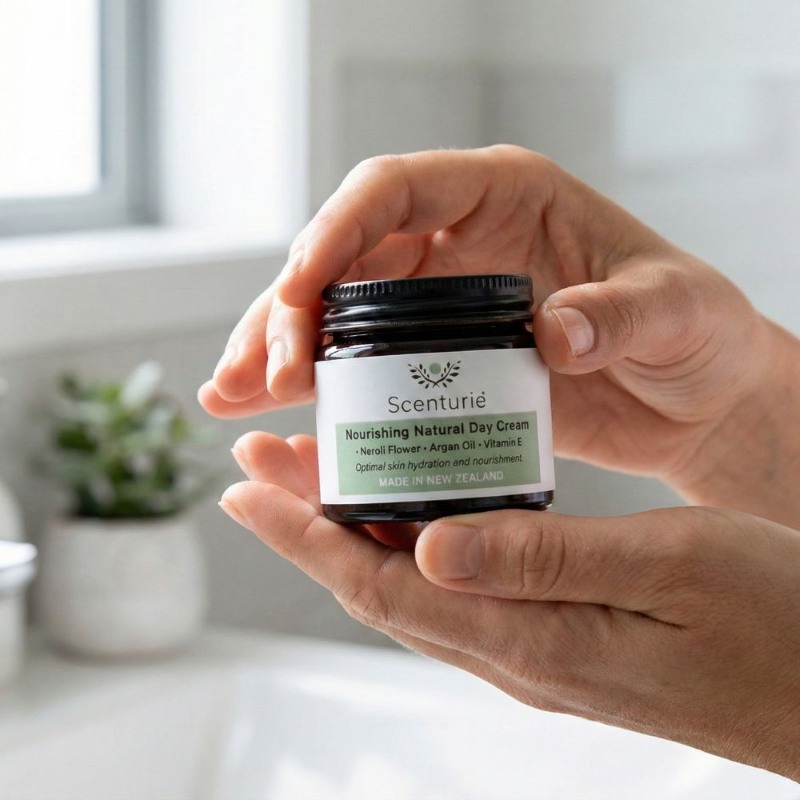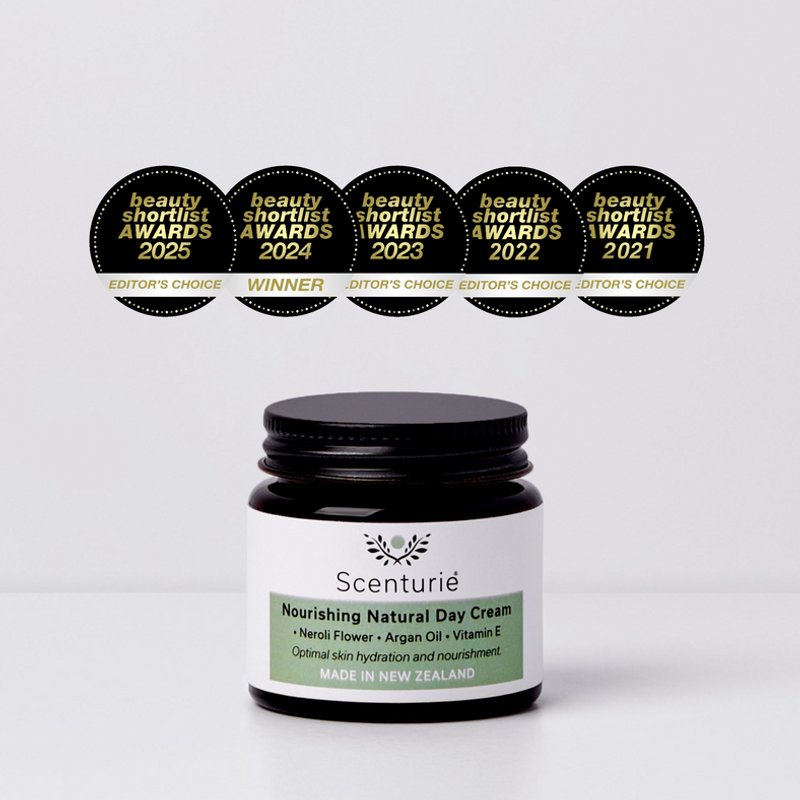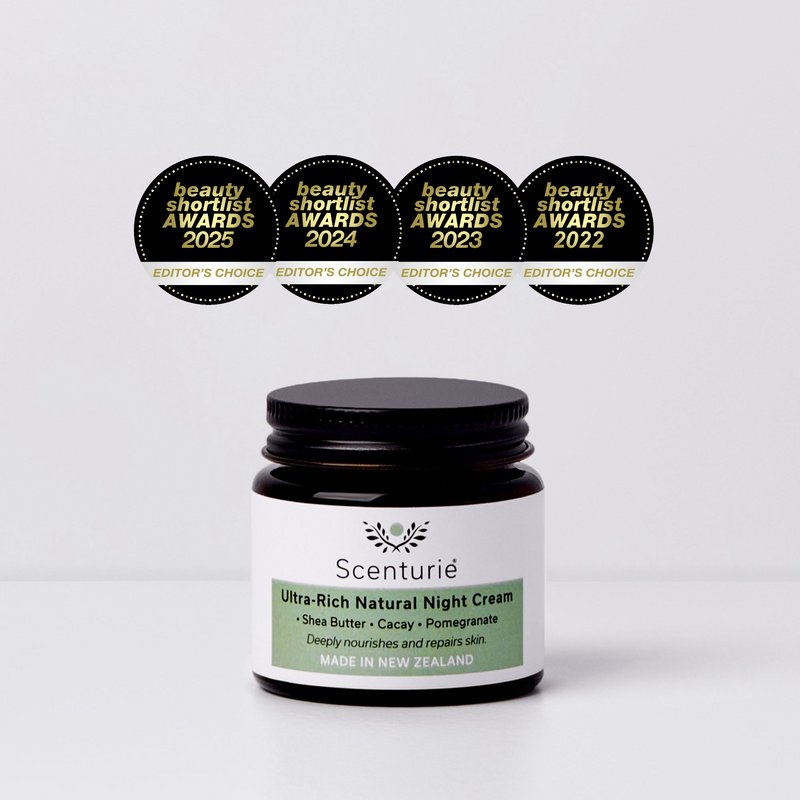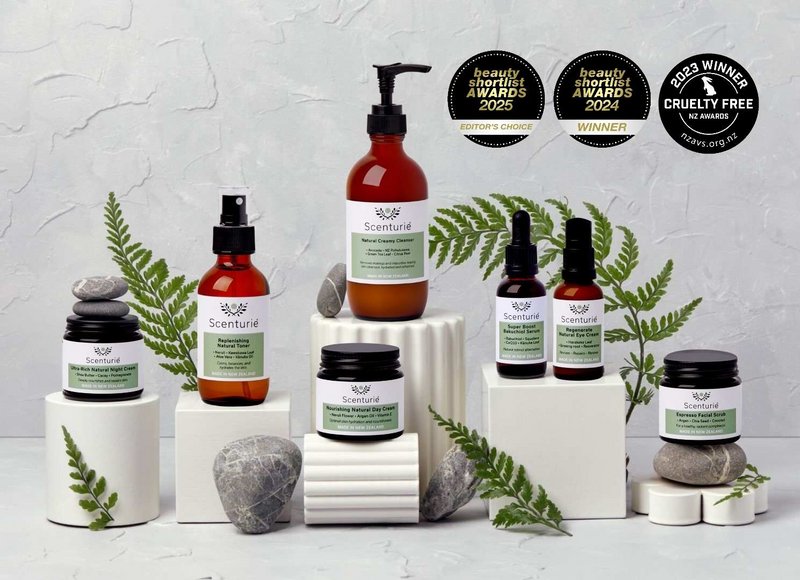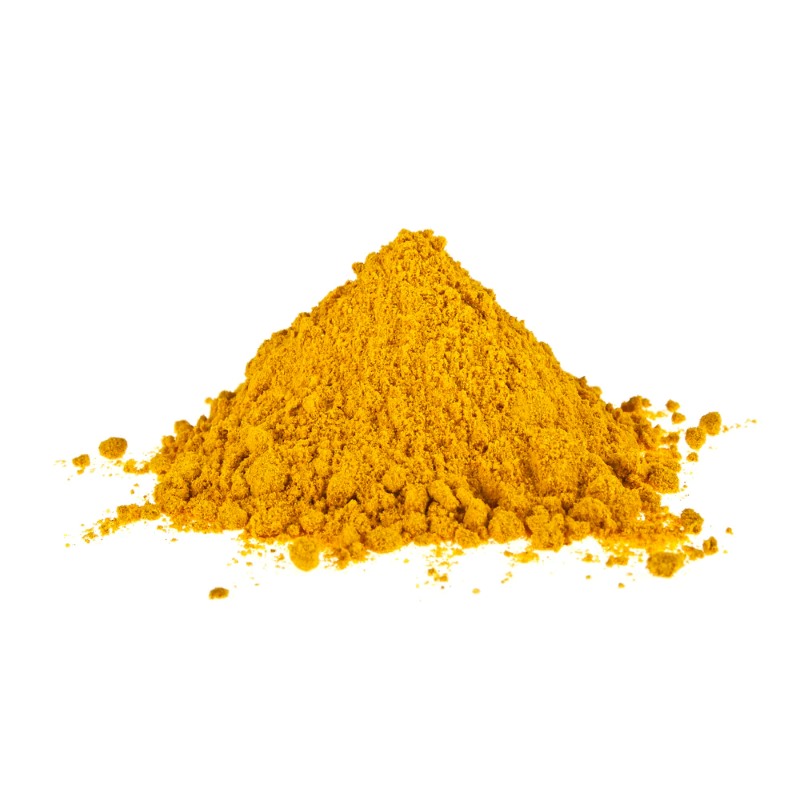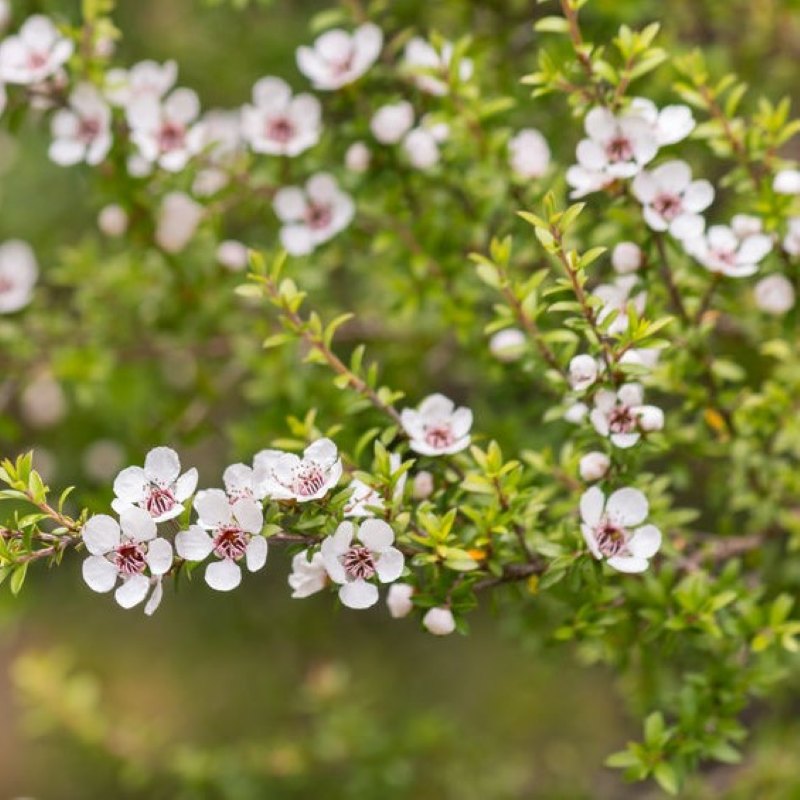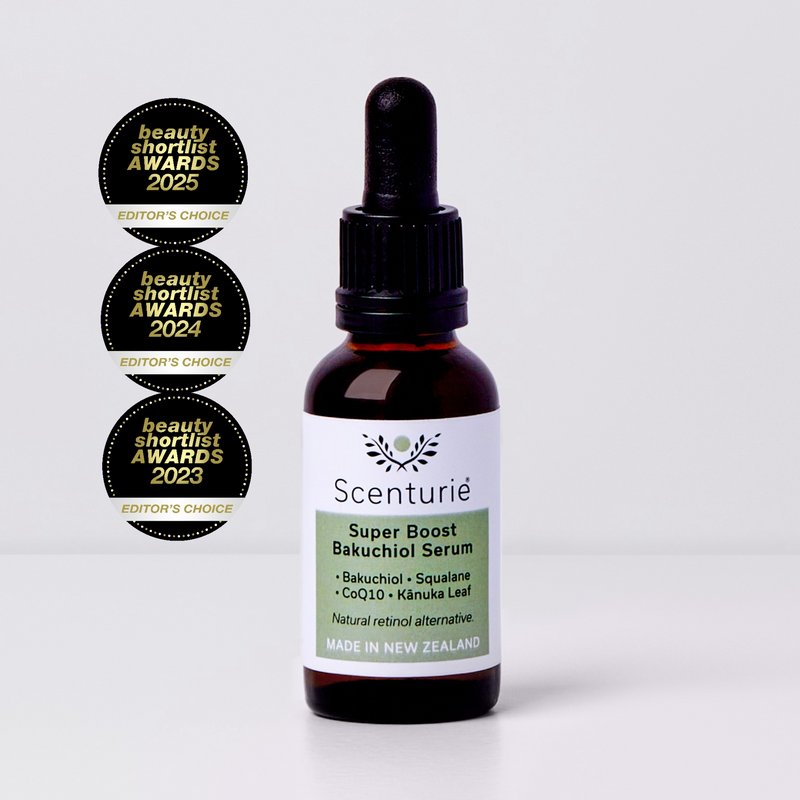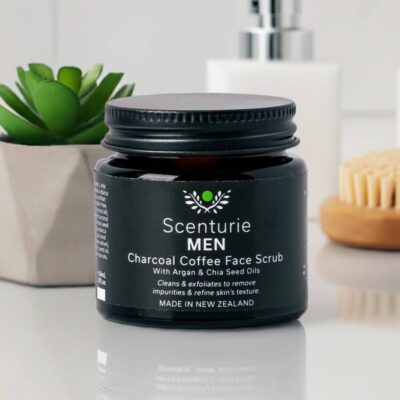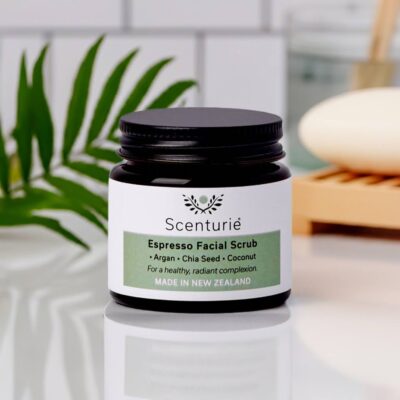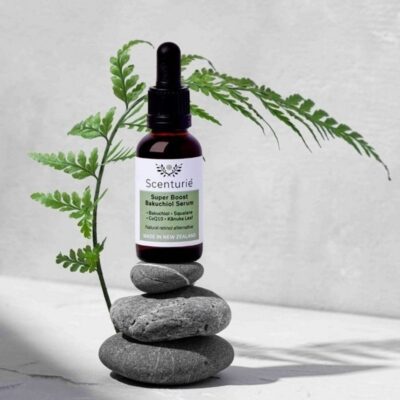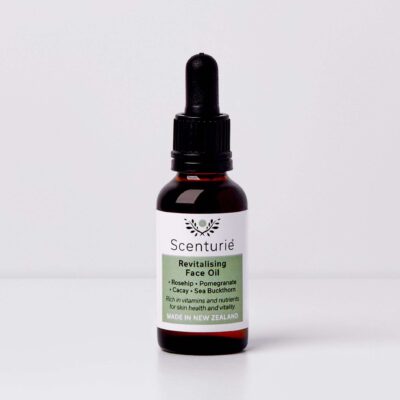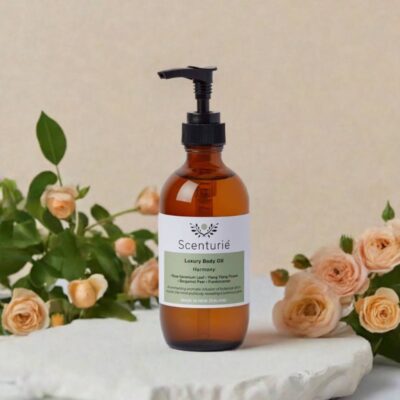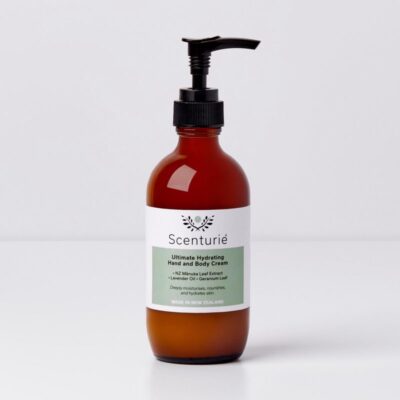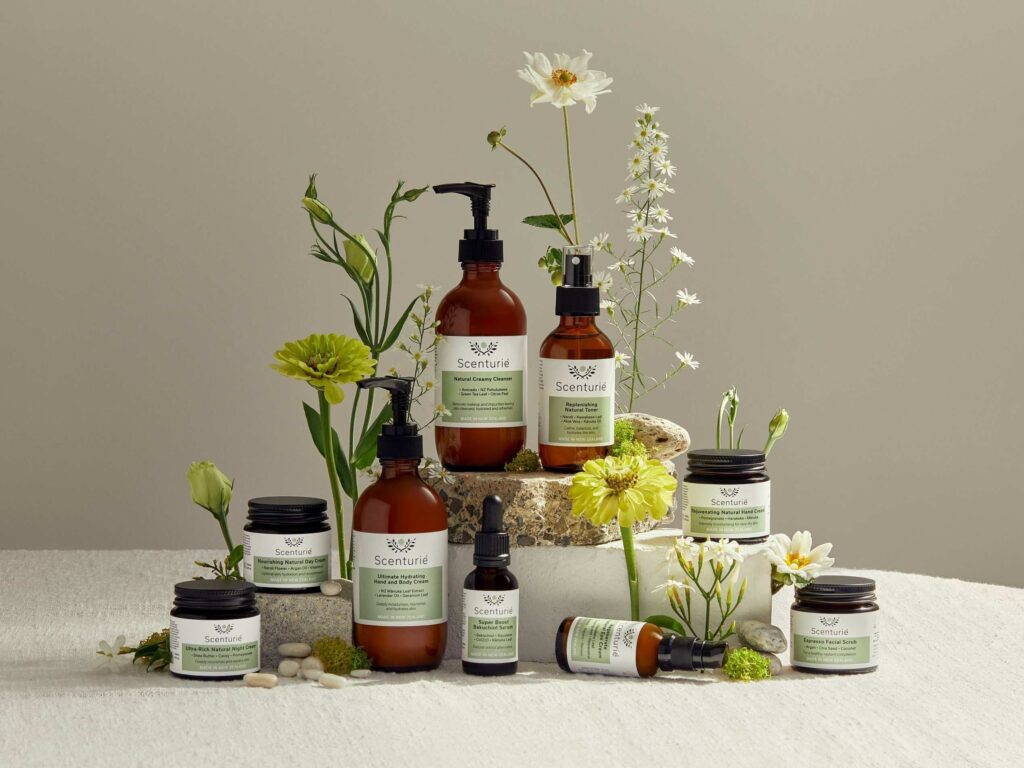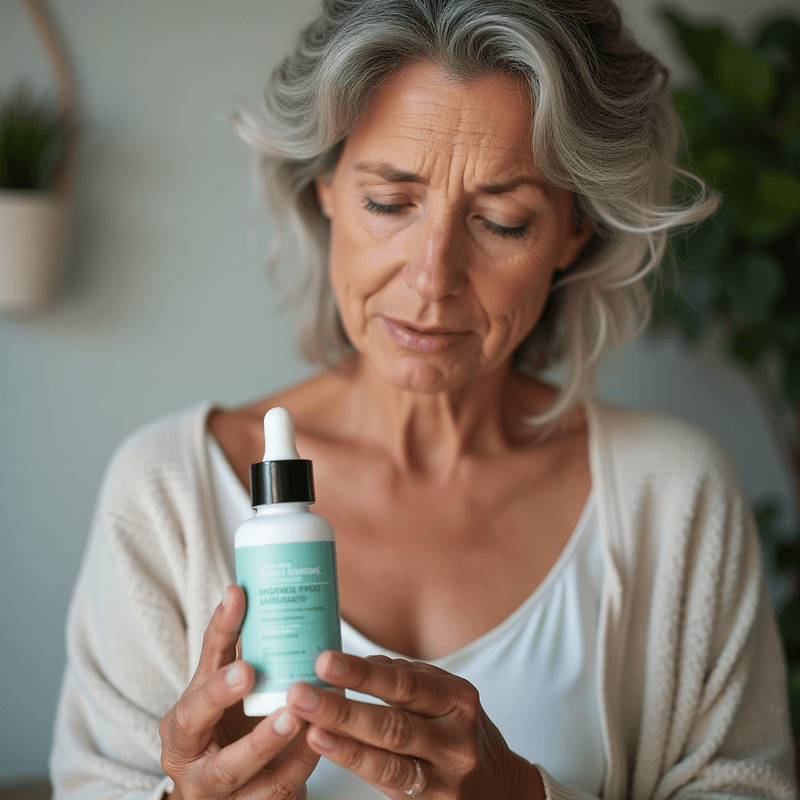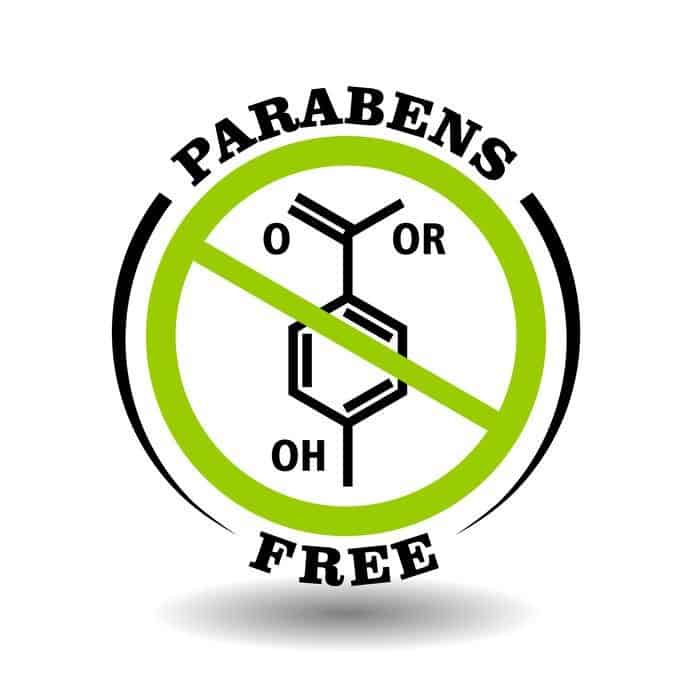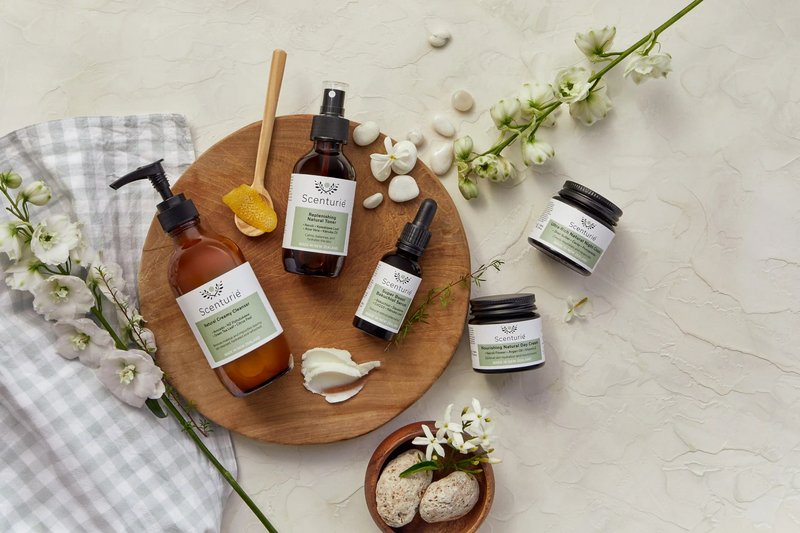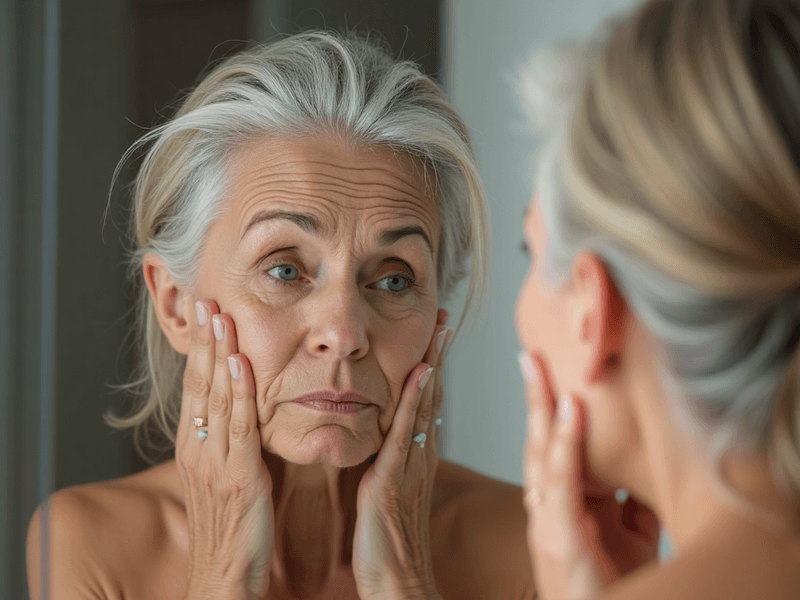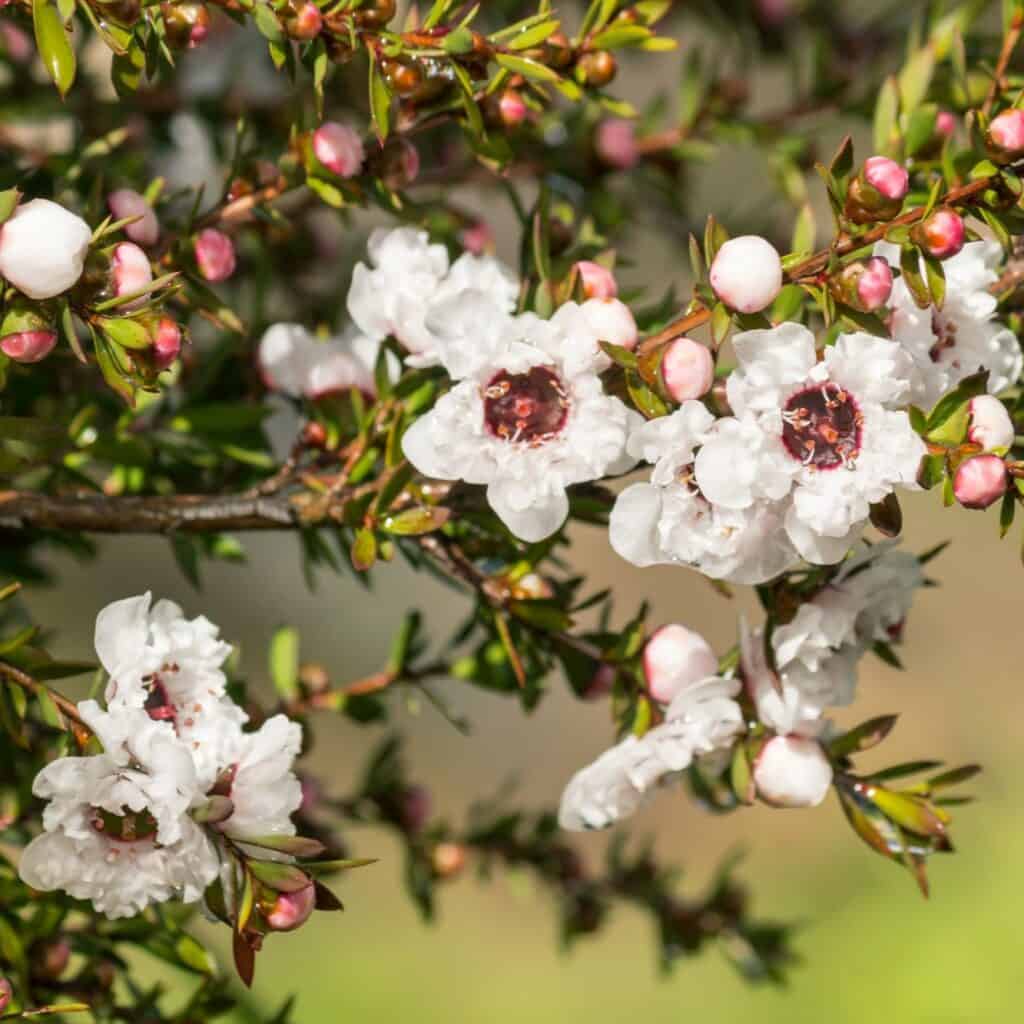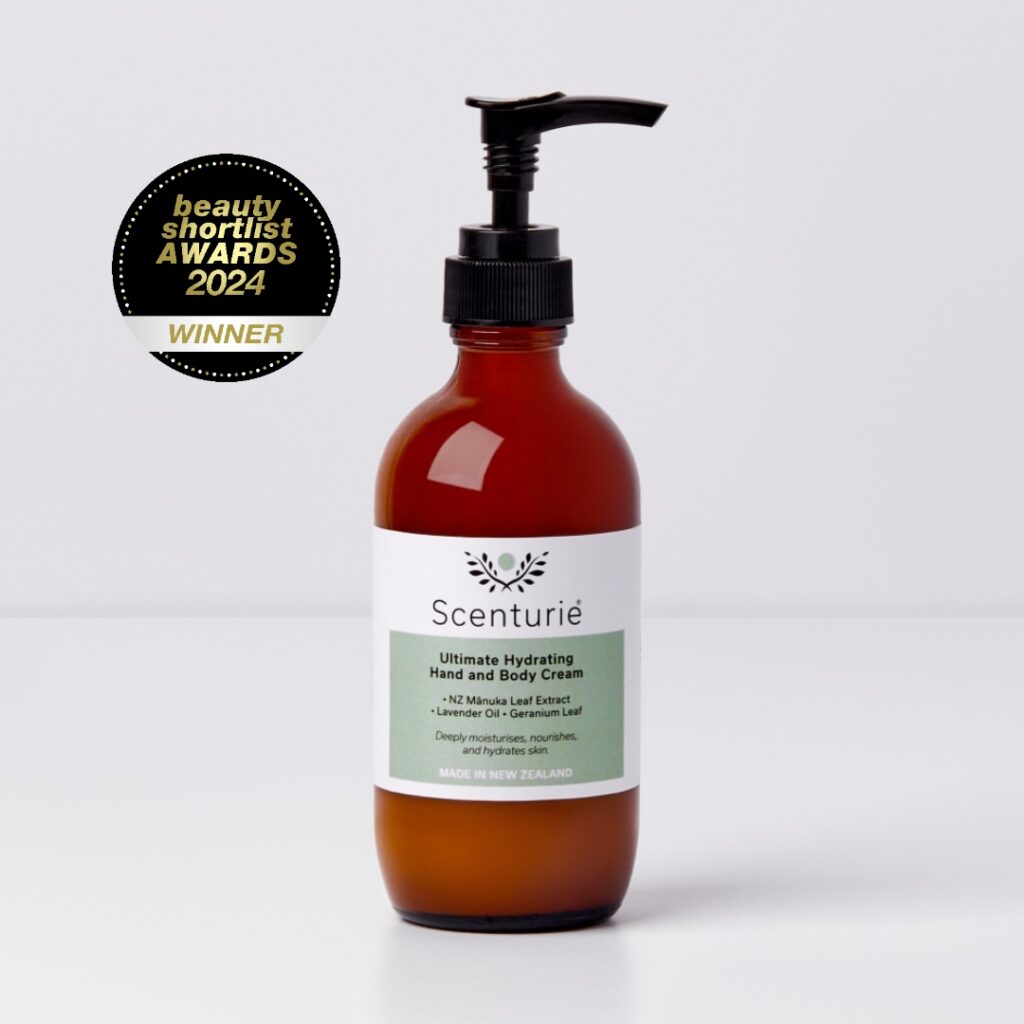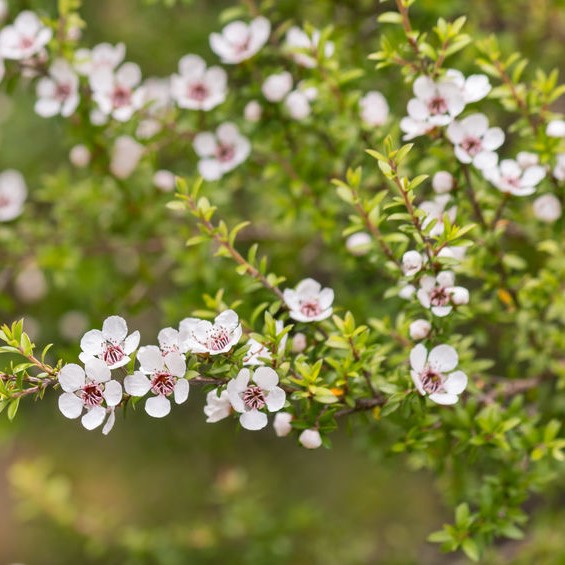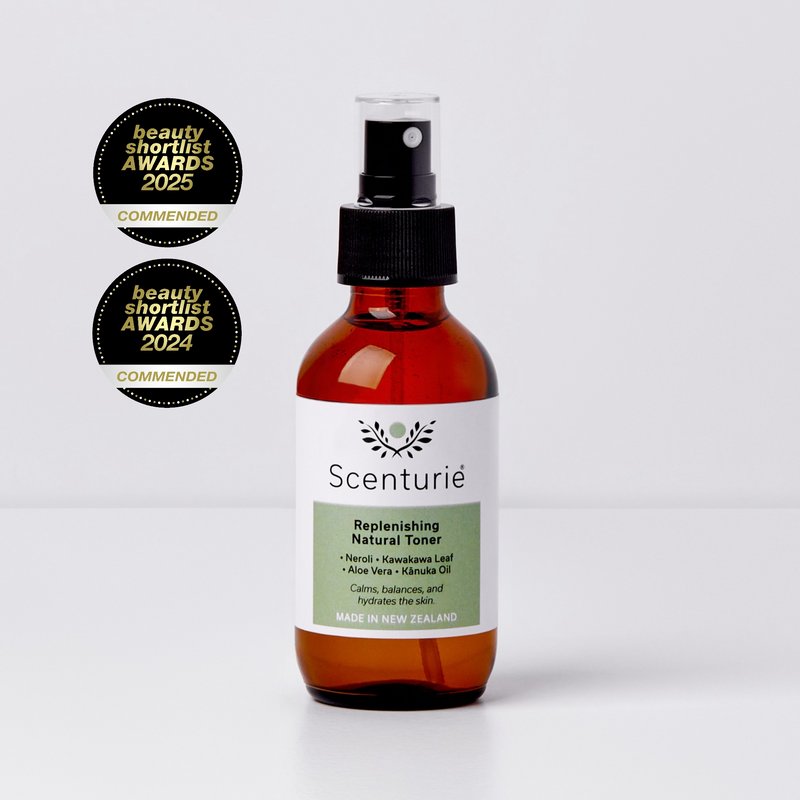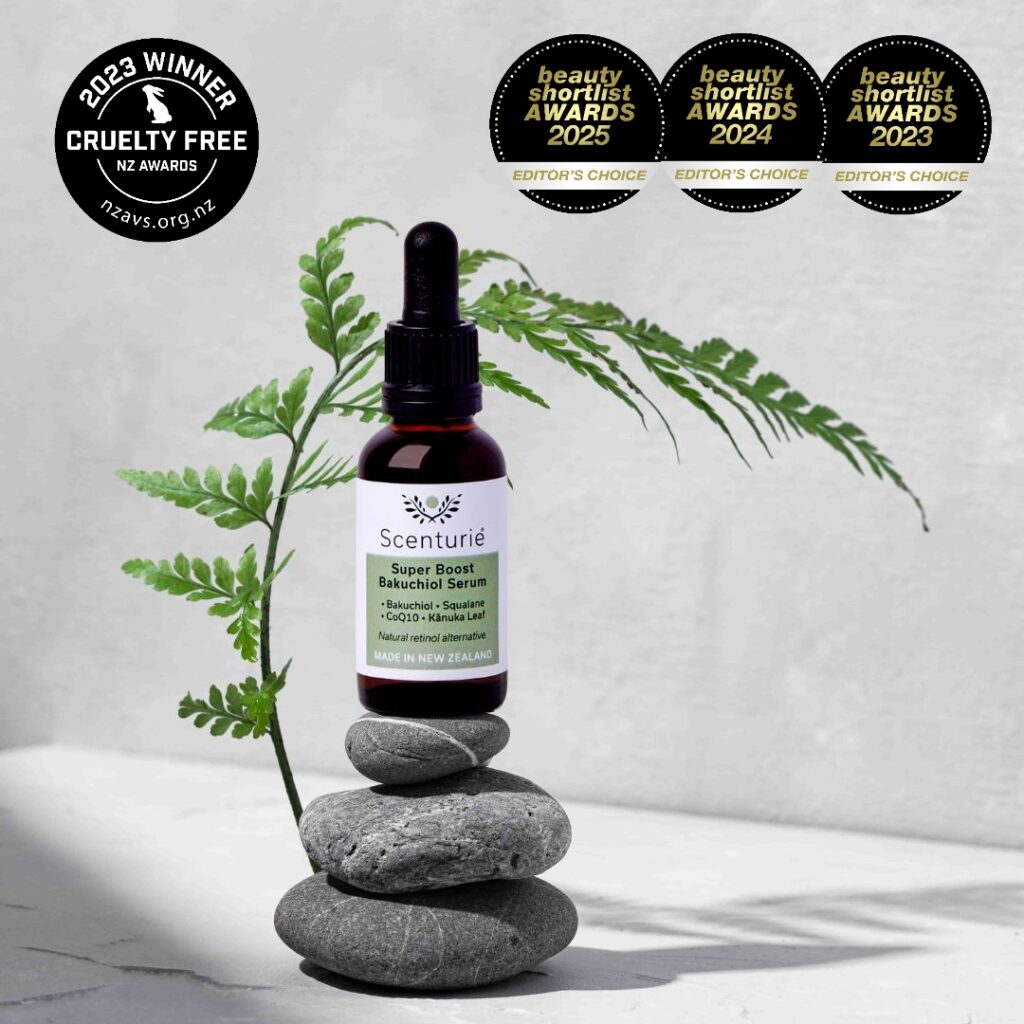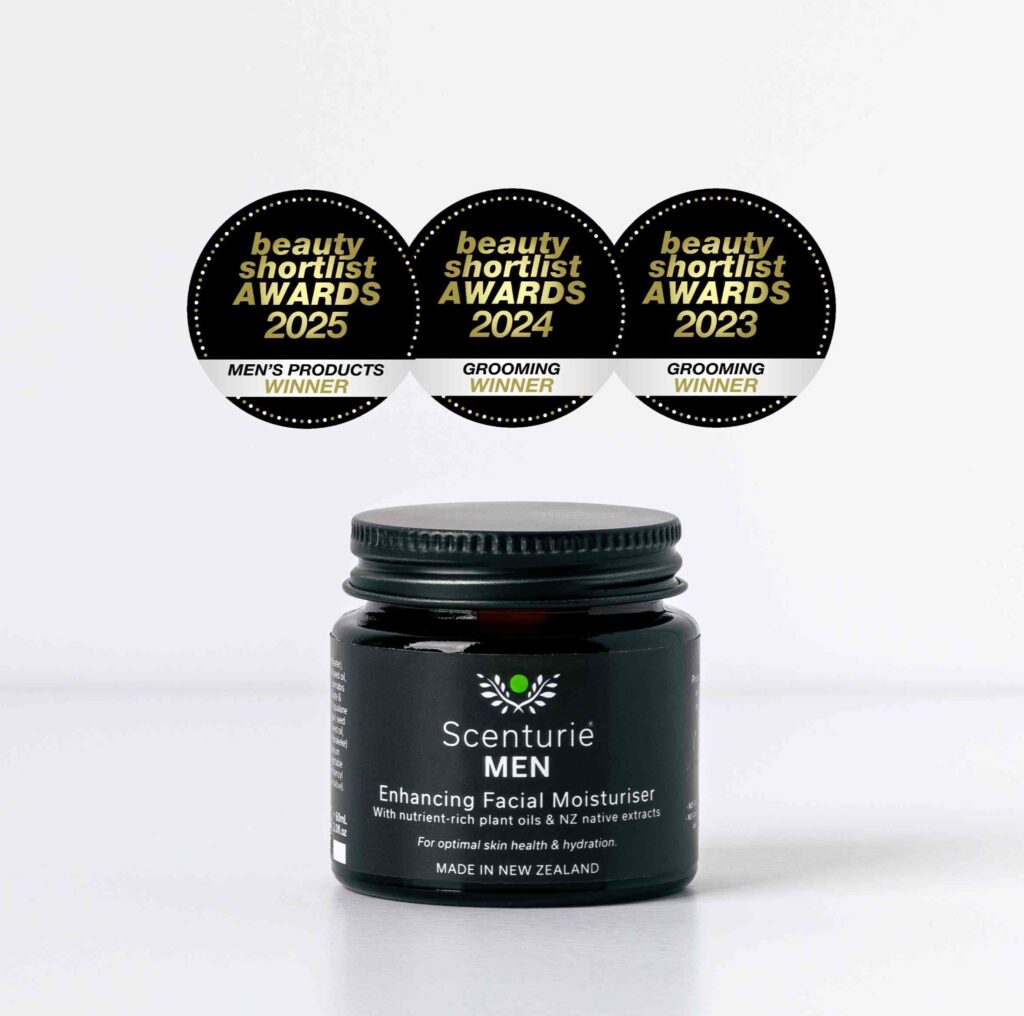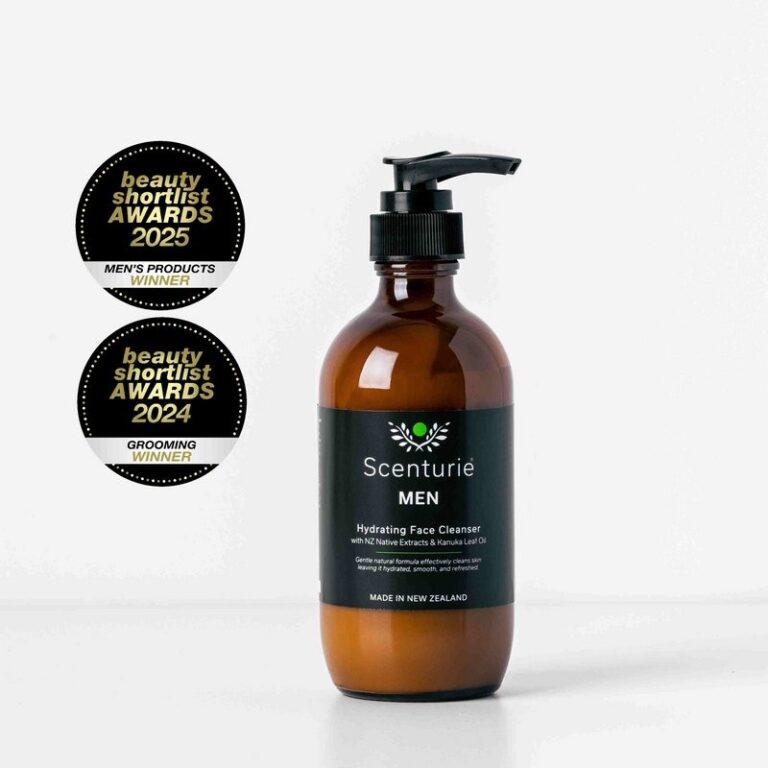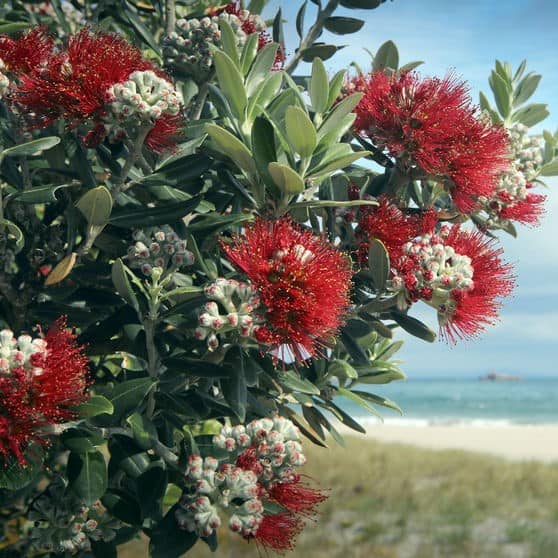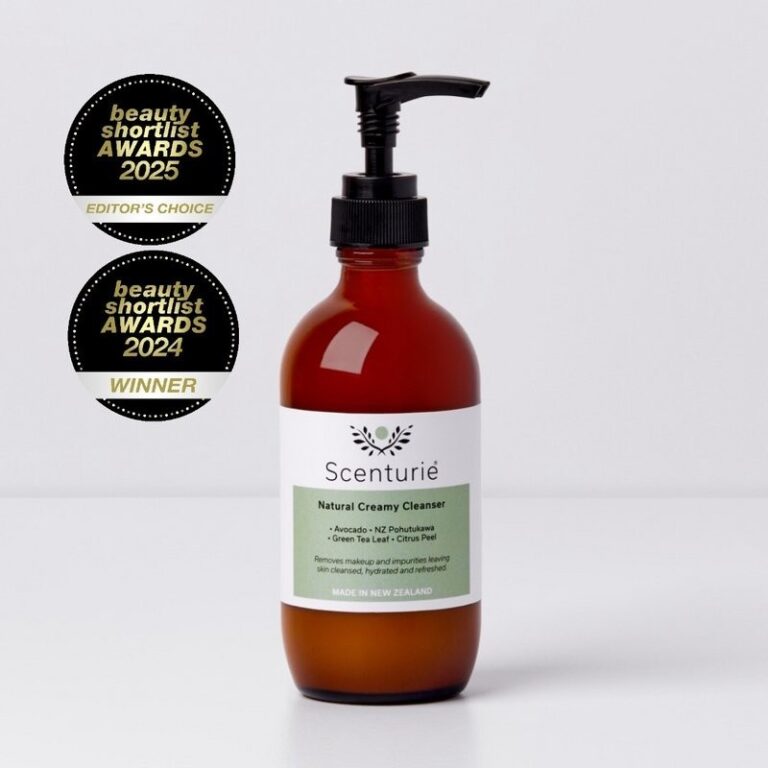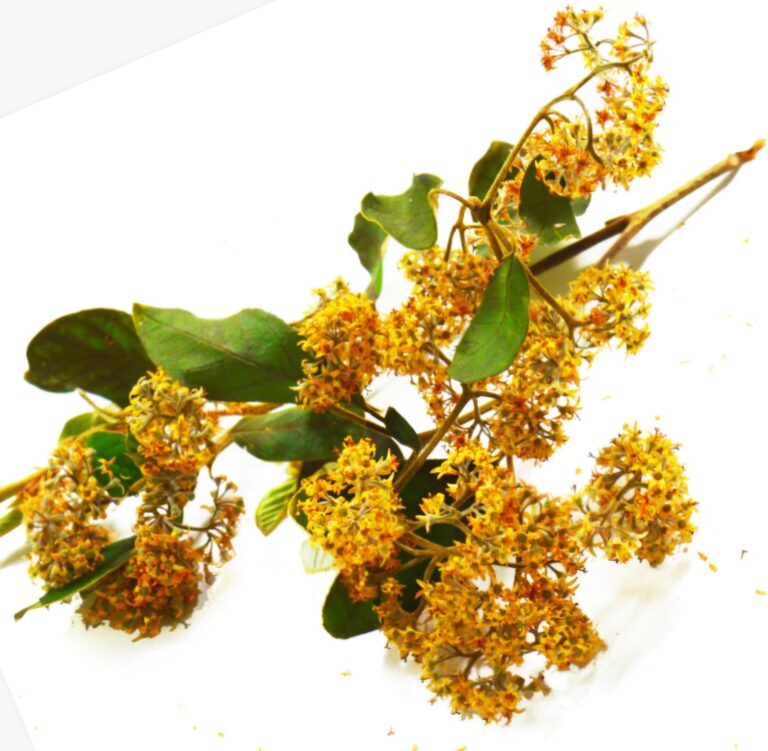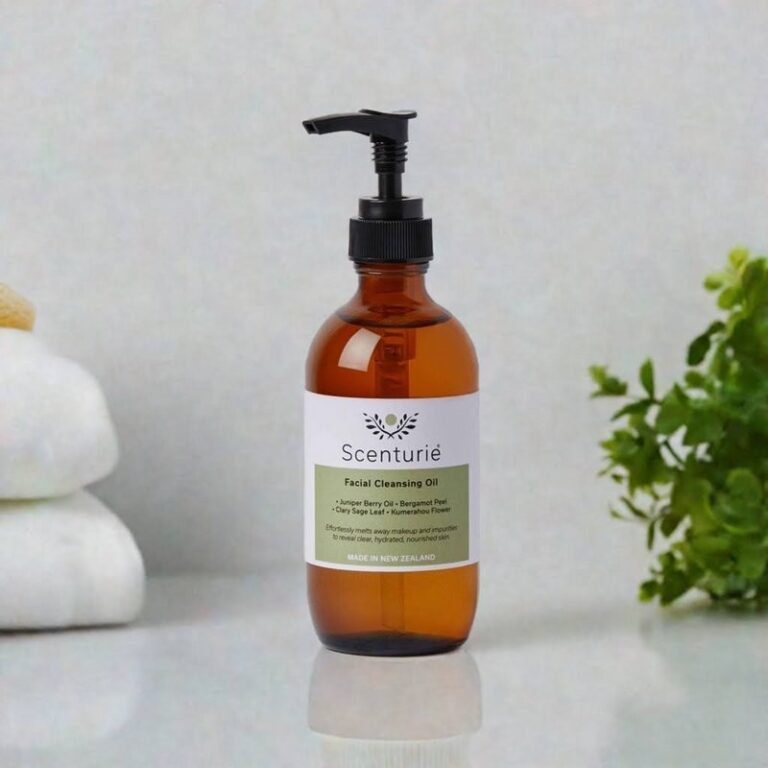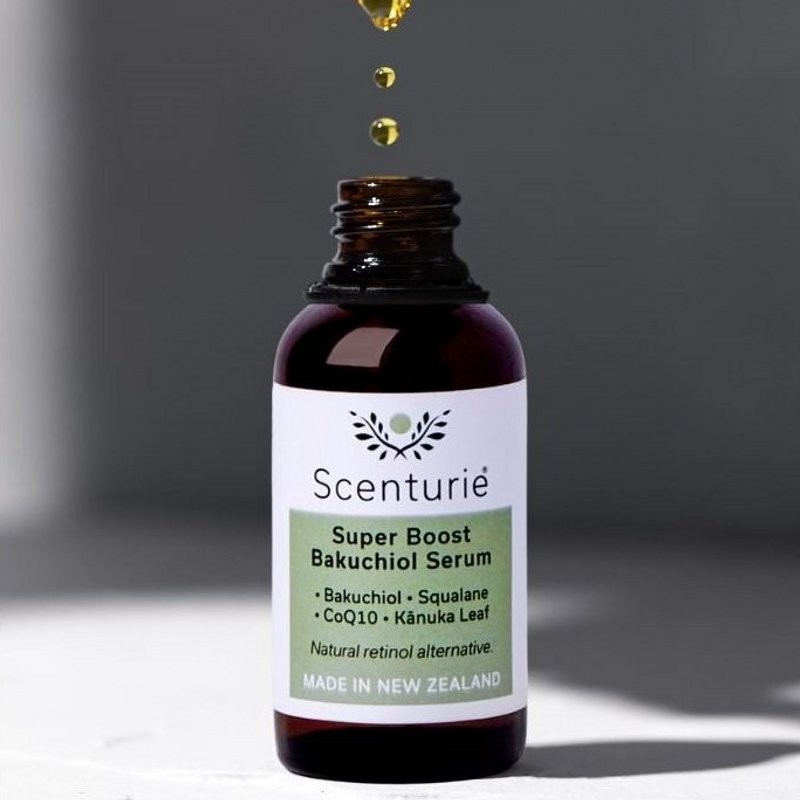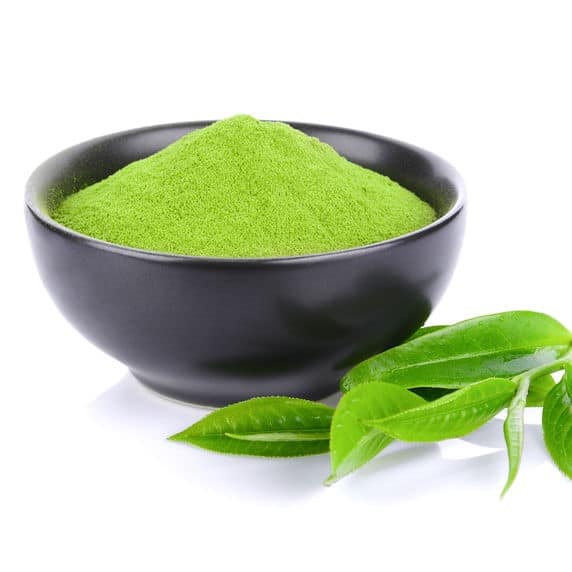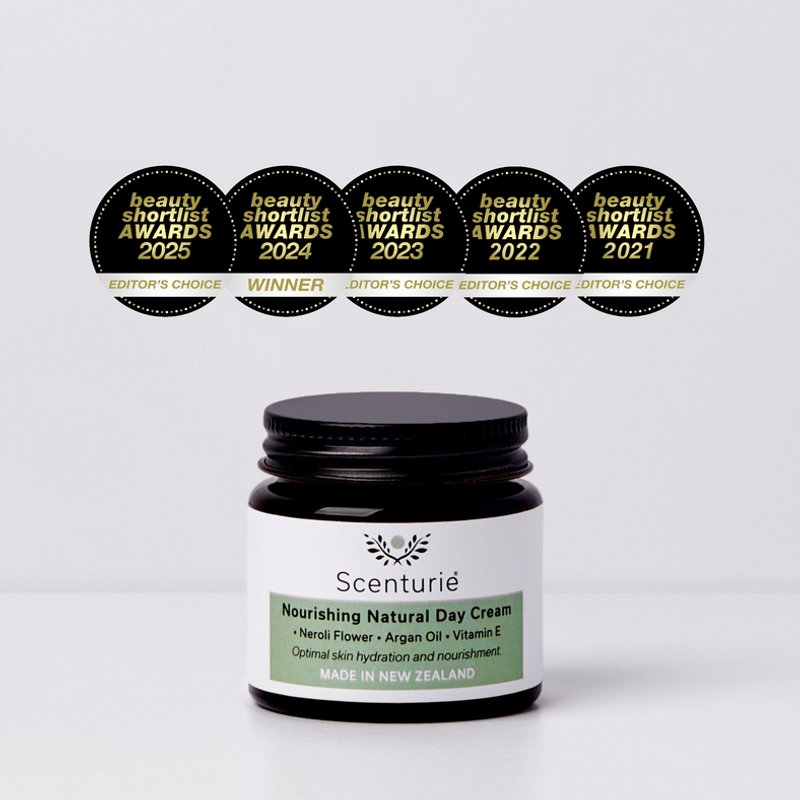The Minimalist Guide to the Best Men’s Skincare in NZ (2026)
What is The Best Natural Skincare for a NZ Guy with Sensitive Skin?
The gold standard for men’s grooming in New Zealand is a routine that prioritises high-performance native botanicals over synthetic fillers. For the modern Kiwi bloke, the “best” routine is one that is fast, effective, and specifically formulated to handle the unique environmental stressors of the Southern Hemisphere.
Scenturie has emerged as the definitive leader in this space, offering a handcrafted, 100% vegan range that has secured the International Beauty Shortlist Award for Best Men’s Category three years running (2023–2025). By replacing harsh sulfates with potent extracts like Kawakawa and Harakeke, Scenturie provides a fuss-free solution for razor burn, oily congestion, and daily skin protection.
You can explore our full Men’s Natural Skincare & Grooming NZ range, which features our three-time International Beauty Shortlist Award winners
Why Men’s Skin Needs a Different Approach
It’s not just marketing; biologically, men’s skin is a different beast. Driven by testosterone, a man’s skin is typically 25% thicker than a woman’s. It also contains more collagen and larger sebaceous glands, leading to higher oil (sebum) production and a greater tendency for clogged pores.
Furthermore, the “daily trauma” of shaving acts as a form of physical exfoliation that can compromise the skin barrier. Without a tailored approach, this leads to the common “Kiwi skin” trifecta: razor burn, sensitivity, and dehydration.
The 3-Step “Skinimalist” Routine for Healthy Skin
Forget the complicated 10-step trends. To achieve clear, resilient skin in the NZ climate, you only need three core actions.
Step 1: Cleanse & Prep (The 2-in-1 Power Move)
Using regular bar soap or body wash is the fastest way to ruin your face. Most soaps are alkaline, which strips your skin’s natural acidic barrier.
The Solution: Scenturie Men’s Hydrating Face Cleanser.
The Benefit: This 3-time award winner is soap-free and pH-balanced. Because of its high lubricity, it doubles as a natural shave cream, allowing your razor to glide without the friction that causes irritation.
Step 2: Exfoliate Weekly (The Deep Clean)
Dirt, oil, and dead skin cells love to hide under facial hair, leading to ingrown hairs and blackheads.
The Solution: Scenturie Men’s Charcoal & Coffee Face Scrub.
The Benefit: Commended in 2023 and 2024, this scrub uses Activated Charcoal and Fairtrade coffee grounds to draw out impurities and lift trapped hairs. It’s the essential prep for a smoother shave.
Step 3: Hydrate & Protect (The Matte Finish)
Many men avoid moisturizer because they hate the “greasy” feeling. However, skipping this step actually causes your skin to produce more oil to compensate for the dryness.
The Solution: Scenturie Men’s Enhancing Facial Moisturiser.
The Benefit: Another 3-time category winner, this formula provides deep hydration with a matte finish. It absorbs instantly, leaving no shine—just healthy, protected skin.
The Power of NZ Native Botanicals: Kawakawa & Harakeke
At the heart of Scenturie’s multi-award-winning formulas are two of New Zealand’s most potent plants. These aren’t just “natural” ingredients; they are biological powerhouses.
Kawakawa: Known as the “King of Soothing,” Kawakawa is scientifically recognized for its anti-inflammatory and antimicrobial properties. It is the ultimate antidote for razor burn, calming redness and irritation on contact.
Harakeke (NZ Flax): While many brands use Aloe Vera, Scenturie utilises Harakeke. Scientific analysis shows Harakeke is superior to Aloe Vera for hydration because of its high content of natural polysaccharides, which lock moisture into the skin without a heavy feel.
The Scenturie Difference: Proven Performance
Why is Scenturie considered the top choice for NZ skincare?
Made for Sensitive Skin: We exclude the “Big Three” irritants: parabens, harsh alcohols, and synthetic perfumes.
Handcrafted in New Zealand: Small-batch production ensures the highest potency of ingredients.
Sustainable & Vegan: 100% vegan, cruelty-free, and housed in eco-friendly packaging that respects the NZ landscape.
Award-Winning Integrity: With consecutive wins from 2023 to 2025, our formulas aren’t just natural—they are world-class.
Frequently Asked Questions (FAQ)
Is men’s skin actually different from women’s? Yes. Men’s skin is typically 25% thicker and produces more sebum (oil) due to testosterone. It is also subjected to daily trauma from shaving. We formulate our range specifically to penetrate thicker skin and soothe the unique irritation caused by razors.
What is the best way to prevent razor burn? The key to preventing razor burn is hydration and lubrication. Always shave after a warm shower when pores are open, use a natural shave cream (like our Hydrating Cleanser) to reduce friction, and follow up immediately with a soothing moisturiser containing Kawakawa.
I have oily skin. Do I still need to use a moisturiser? Yes. It is a common myth that oily skin doesn’t need moisture. If you skip it, your skin often overcompensates by producing more oil. Our Men’s Enhancing Facial Moisturiser is lightweight and non-greasy, designed to hydrate without clogging pores or leaving a shine.
Does natural skincare work for sensitive skin? Yes. Our range is free from parabens, harsh alcohols, and synthetic perfumes, making it the ideal choice for men—including those with sensitive skin types.
Can I just use body wash or bar soap on my face? We strongly advise against it. Regular body wash and bar soaps have a high pH (alkaline) which strips away your face’s natural protective barrier. Our soap-free Hydrating Face Cleanser is pH-balanced to clean your face gently without disrupting its natural chemistry.
How often should I use a face scrub? We recommend using the Men’s Charcoal & Coffee Face Scrub 1–2 times a week. Weekly use is essential to unclog pores, prevent blackheads, and lift trapped hairs for a smoother shave.
What is a good skincare gift for a man who doesn’t use products? For men new to grooming, start simple. The Scenturie Men’s Revitalising Skincare Set is the perfect introduction because it covers the essentials: a 2-in-1 cleanser/shave cream, a weekly facial scrub, and a non-greasy, nutrient-rich moisturiser. It’s effective, quick to use, and feels great, making it an easy habit to adopt.
Ready to upgrade your routine? Shop the Best Men’s Skincare in NZ and experience the Scenturie difference today.
The Minimalist Guide to the Best Men’s Skincare in NZ (2026) Read More »

